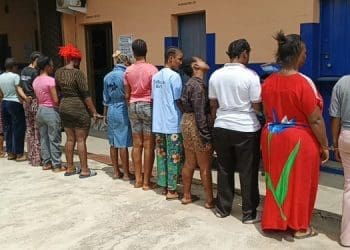The Minister of Education, Haruna Iddrisu, has announced that the government will recruit 50,000 new teachers in 2025, as indicated in the financial and budget statement.
The process for recruitment, he said, will begin after the presentation of the mid-year budget in July.
He announced this on the floor of Parliament on Wednesday, June 25, 2026, when answering urgent questions from Members of Parliament.
While responding to the reason some teachers who were recruited in 2024 had not been paid, the Minister explained that the Ghana Education Service (GES) could not complete the validation process for 5,643 newly recruited teachers in 2024.
According to Haruna Iddrisu, the process would begin once the Finance Minister had given the clearance and the Auditor-General had completed a validation process to get ride of ghost names on teachers’ payroll.
Additionally, the GES was conducting data validation of those teachers’ Social Security and National Insurance Trust (SSNIT) identification numbers to enable the service to address ghost names on the government payroll and their retirement periods.
Currently, he said, those processes have been completed but are awaiting financial clearance from the Ministry of Finance.
On the issue of some teachers who had not been paid for two years, the Minister stated that those teachers were victims of a recruitment scam; therefore, the Ministry did not have records of their appointment.
While responding to an allegation from Minority Leader, Alexander Afenyo-Markin, that a teacher died when some unpaid teachers picketed at the Ministry of Education recently, Iddrisu said: “This is despicable lies; no teacher died at the premises of the Education Ministry” and challenged the Minority Leader to provide evidence to that effect.
Ghana is facing a growing shortage of teachers, particularly at the basic education level, as thousands of classrooms remain without qualified instructors.
The situation is raising concerns about learning outcomes and the country’s ability to meet its educational goals.
According to recent data from the Ghana Education Service (GES), the country is short of over 45,000 trained teachers, especially in rural and underserved areas.
This shortage has forced many schools to rely on untrained personnel or increase class sizes beyond recommended levels, reducing the quality of education.
Education experts have attributed the shortage to several factors, including limited recruitment, retirements, migration of teachers to urban centers or abroad, and inadequate teacher training output.
Despite recent government efforts to recruit 50,000 new teachers this year, stakeholders say more strategic investment is needed in teacher training, incentives, and deployment policies.















